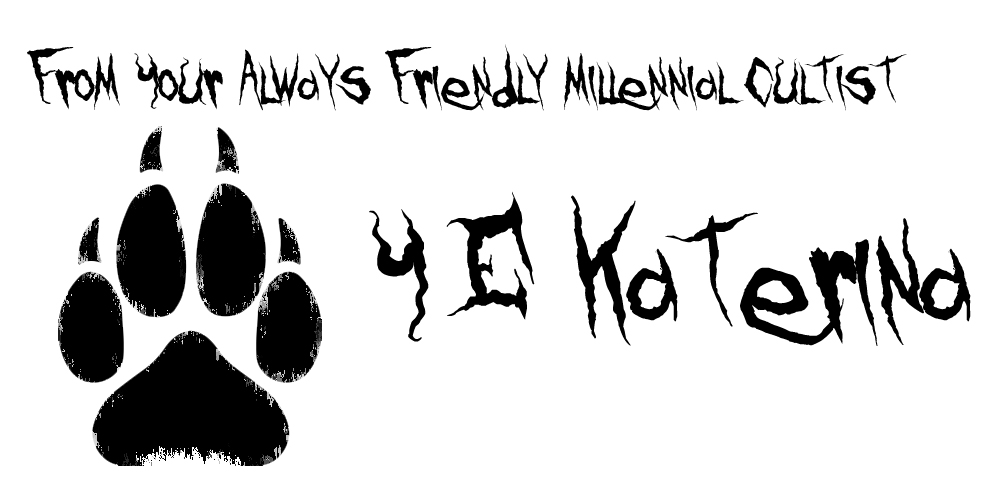
Happy beginning of the week, wolf pack!
I’m back for the weekly lore/world-building update. In case you are new and don’t know what this is, each week I share a bit of the world I have created in my series, "Children of the Dire". It would mean the world to me if you took the time to read through it. I’ve worked hard to create "Romeldaros" and what I share is just the tip of the iceberg when it comes to what I have plotted for the world.
This week we are talking about the midland kingdom known as Samhinland. Which is the most mysterious out of all them (and with the longest history so bear with me, while I get through it all). 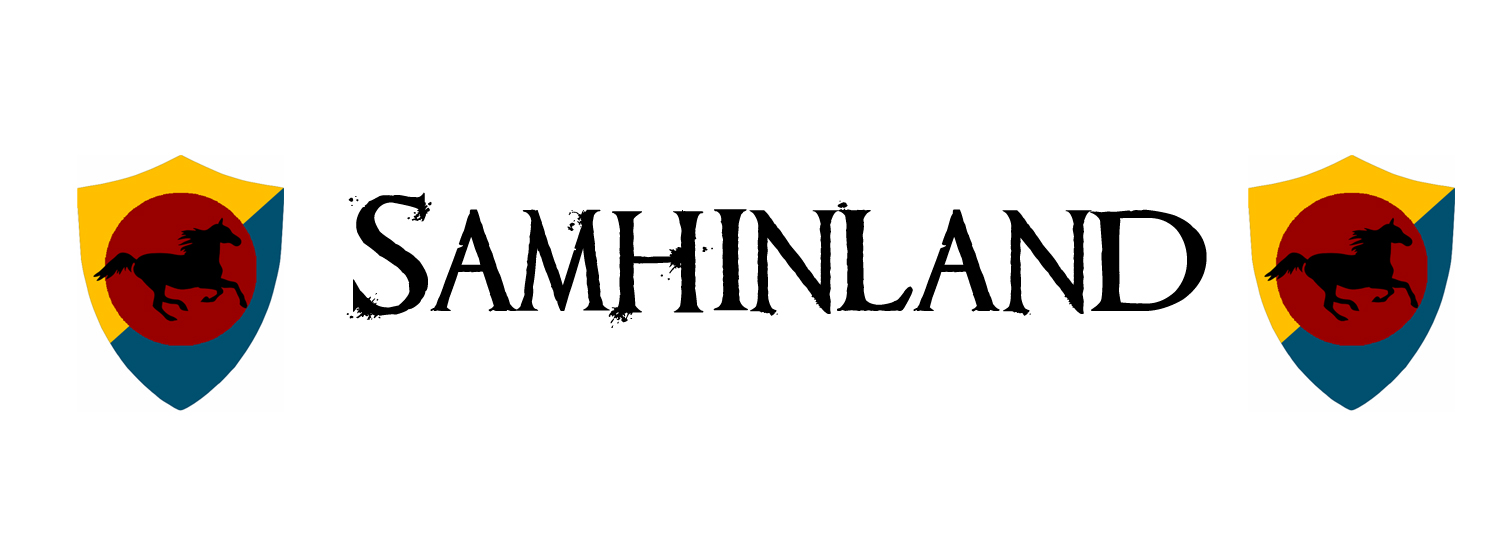
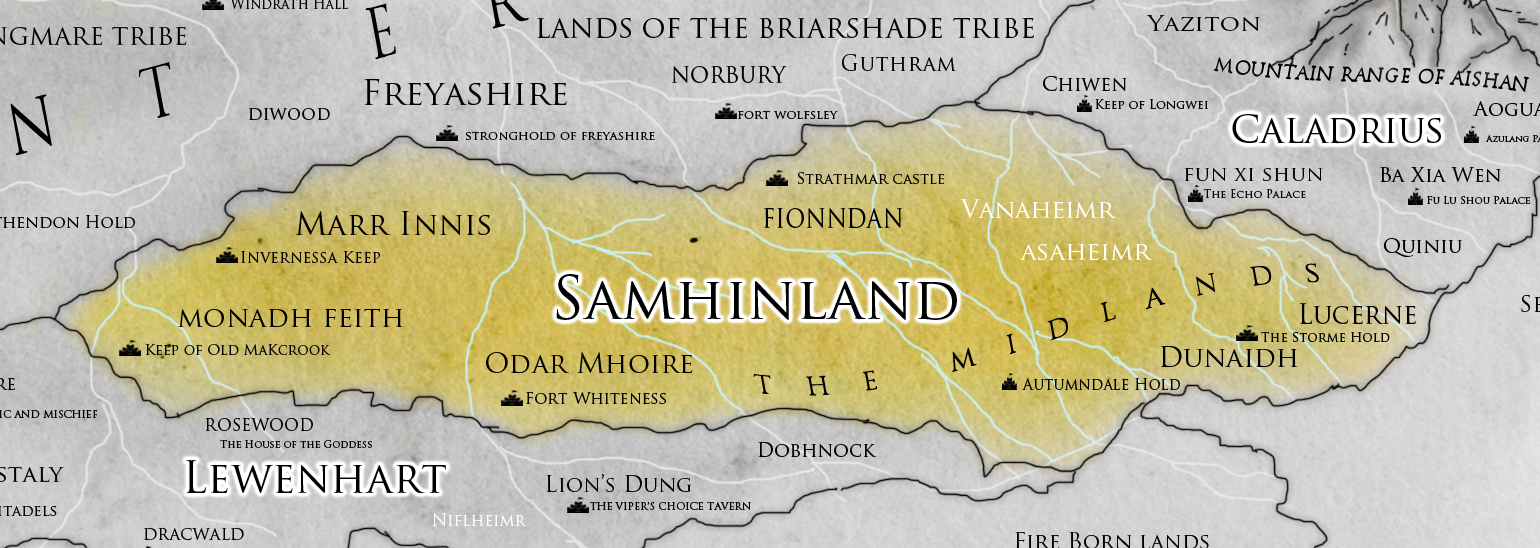
"The woman knelt to her knees and examined the head. It resembled her, with a narrow face, big eyes and long hair. She touched the pointed ear of the head, brushing back her own locks, to reveal similar shaped ears.
She glanced up, her eyes drawn to the landscape of Samhinland, the middle land of the kingdoms. The foggy moor stretched beyond the horizon, kirks of moss-laden boulders replaced the galleries of trees found in the north. The sun kissed the earth dipping towards the vast horizon. Dusk’s mist hung as a blanket over the forgotten lands. The half-blooded woman set her lips in a grim line. Her head wilted at the sight of annihilation of her people." (The Renegade Blade, 95)
Samhinland is the central kingdom within the realm, dividing the north from the south. It lies between Lewenhart and the winterlands, and to the west of Caladrius. It is an ancient land shrouded in the mysteries of a lost race and ancient magic. The old race of the mages, the Anora, once made these lands the capital (before the east was discovered) till barbarian men sprouted from the soil and destroyed their empire. Now, the kingdom remains as a ghost town bearing the relics of a bygone era of magic and mischief.
~ Histories & Politics ~
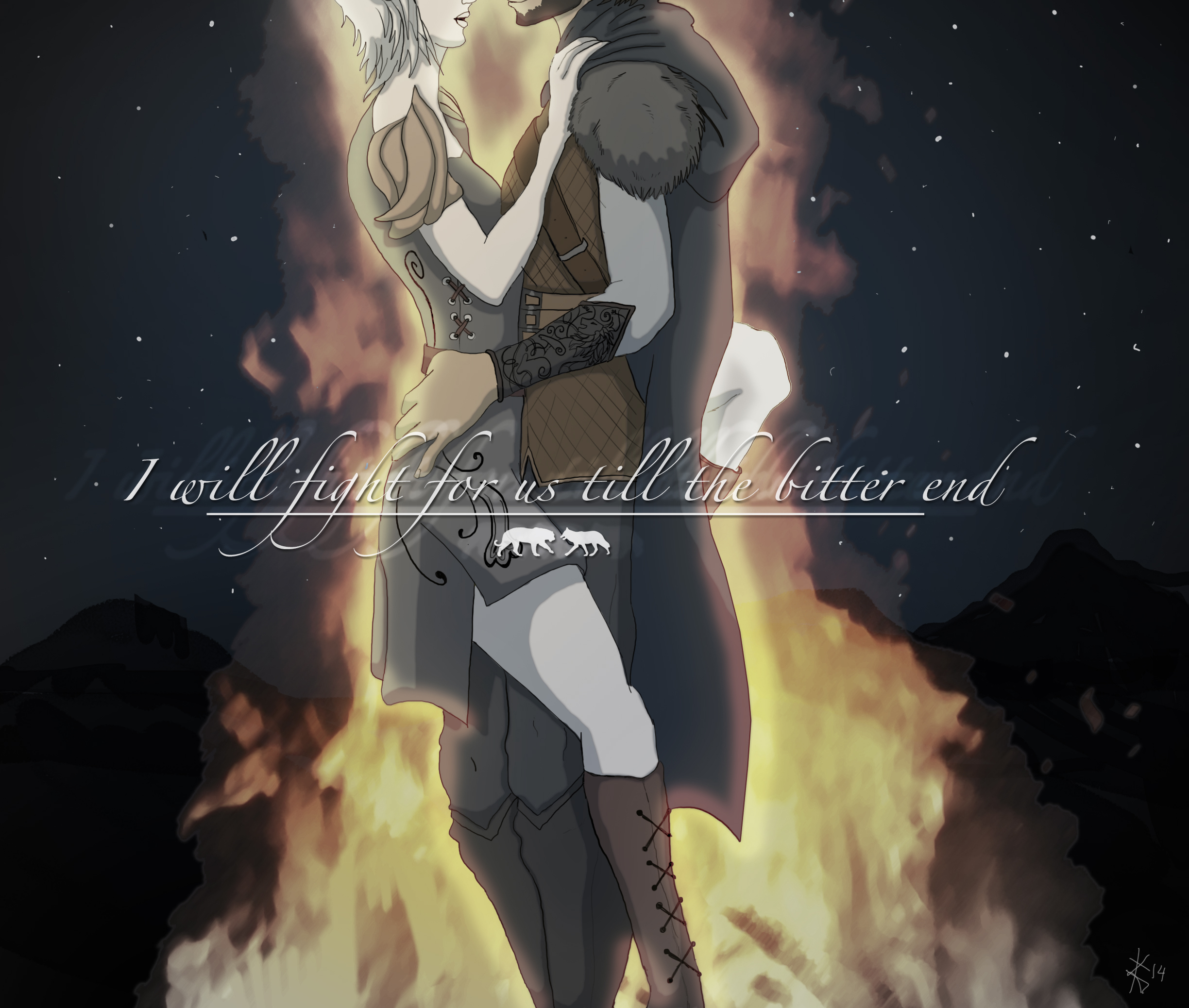
The date of the birth of the Anoran people is unknown, as they are the oldest of the elder races now near extinct to the realm of men. Their entrance into the kingdom is known only by folklore.
According the the manuscripts found within the libraries of Lewenhart, the mages were brought into being when the stars rained from the heavens. They crashed upon the earth, forming beings that were the first of the races to walk the realm. They were the first children of the light. They acquired wisdom and began to live in moors, calling it home. The Anora spread, living under the guidance of their gods. The Anora flourished and multiplied throughout the world, seeking knowledge and leadership. They were characterized by their white hair and pointed ears.
The Age of the Mages (900 S.F. - 0 A.R.) was the golden era for the Anoran. They ruled over the other races (the dire - werewolves, the laec - selkies, and the kallai - dragonborn humanoids). This era was deeply romanticized by scholars as the times of fine art, fashions and gothic architecture.
"A statue of a man with a narrowed face stood before her, his arms broke from his vessel of stone. He wore a crown of holly upon his head. Katja touched the feet of the first king. She knew the tales of the man as a distant memory in her childhood." (The Renegade Blade, 404)
It began with King Odyn the First Lord of the Land (815-747 S.F.), who valued knowledge and education for the other races. He was a strong military strategist and used the savage state of the other regions in order to rope them into his kingdom, promising lands and protection. When he became king, the realm flourished with thousands of ice and fire dragons, roaming the world as common beasts. The king saw power within these beasts and wanted to gain their strength for his own.
He hired Cadmus the Dragonslayer to kill a beast for him, and bring him its blood. Cadmus managed to achieve the honour of killing a dragon, with the aid of seven other commanders in his legion: George Ladon, Jason Ormr, Fell Drogon, Tristan Bowman, Marduk Frigg, Hel Indra, and Cleric Fae Norwood. Norwood was a scholar who studied the blood of magic. She was forged magic with the breath of the dragons creating the magics of pyros (fire) and pagos (ice). She presented the magic to her king who passed it through the bloodline of the elite. The breath of dragons gave the Anora magic. They continually hunted dragons to near extinction for their power. Some scholars state that the breath of dragons was more of a power drug than magic, used to get them on a "high".
The Quest to Kill The First of the Land (783 - 763 S.F.) came to an end after the mages learned that once the breath of dragons was given to a man or woman, they kept their abilities to bend the elements of winter and summer.
After King Odyn came Elefreyra the Queen of Jynshire (763 – 735 S.F.). She was the Anoran woman responsible for popularizing magic to the common Anoran man or woman. She shared it with only the members of her race, making the Anora more powerful than any others in the kingdom. However, power always comes with a price and the Anoran were quick to figure this out. The crown passed to her son King Aragon (735 – 720 S.F.) who took a liking to the studies of dark magic. He was known to be eccentric and removed from the other mages, often having his nose buried in occult books. He experimented with blood magic, and created a third magic from the blood of the mage, known as Eurbrus, which was a magic of darkness.
"The king who took a liking to dark magic. From the tale, he forged a new form of magic from the darkness in his heart. The deep blood magic was banned after his death, never to be seen again, and for good reason.” (The Renegade Blade, 406)
King Aragon wanted to be the most powerful mage. He killed any who bore the magic of pyros and pagos, sacrificing them to strengthen his own blood magic. However, it did not stop a group from meeting in secret, plotting to overthrow this dark king. These mages turned from their old gods, believing there were no gods in the heavens. They made their own gods from ideals rather than idols, naming them after the star signs in the skies. These mages were led by a man named Tyr (742 – 720 S.F.) who was not an Anoran. He was a son of man who bore no magic. Tyr stepped forward in peace. He gave his life to protect his people and the guild. He was killed in the Battle of the Rivers and with his death; the Anoran people were saved from destruction from the hand of the dark blood magic. Once King Aragon was killed, the Treaty of Deep Magic was signed to outlaw blood magic. With Tyr dead the crown passed back to the Anoran people.
A second golden age came after the fall of King Aragon. Nara the Queen of the Jade Isles (660 – 592 S.F.) ruled with an iron fist and a strong hand on magic and the arts. Her son was King Galveston (592 – 544 S.F.). While the prince was still a minor, Navarre was Duke of Lewen who by 547 ended up as second in line to the throne and was the most powerful noble in the realm. The duke staged a coup and threw out the minority council and named himself as protector (regent) of the king.
Before Galveston was officially crowned, he had declared Galveston illegitimate and usurped the throne, being crowned shortly thereafter as King Navarre the Bad (592 – 544 S.F.), imprisoning Galveston in the Tower of Lewen. King Navarre the Bad was the worst king to the Anoran. But the most interesting thing about him was his death.
"Navarre was very ill, and his physician ordered him to be completely wrapped from neck to toe in linen cloth soaked. One of the doctor’s attendants was sewing up the cloth so that it would be nice and tight. When she finished, she wanted to cut the remaining thread. Since this treatment was performed at night, she didn’t want to use scissors in case she cut the king. Instead, she decided to burn off the thread with a candle. The linen was completely soaked in brandy, so when the lit wick came close, the king went up in flames." (Twilight of the Gods, 2032)
After King Navarre the Bad came the era of the Lancastrian, beginning with the Spider Queen, Queen Elizabeth (544 – 492 S.F.) who was a common mage turned queen in marriage. Her son, Red Prince Elrian Lancastrian who won the War of the Kingmakers (502 – 407 S.F.) and King Harith Lancastrian the Fireborn (407 – 332 S.F.) The king who killed his cousin and stopped the Kallai and the Anoran from hating one another. He married Queen Merrill Oakheart, but she could not grant him sons, so he sought a divorce. By the gods of his kind, one could not leave his wife. He found a new god, known as the Morrigan and created the Treaty of the Nine Gods (380 S.F.) which allowed the worship of pagan gods.
"Listen, Riordan. You will like this one. In the golden age of time, there lived a race known as the Anara, no, the Anora, they were mages of the craft of pagos and pyros. Their king was Arandron the Lightborn who formed the vast kingdom of Illyria. It was an era of scholars, arts and wealth for those under his rule. Yet, the barbaric tribes of men threatened society to birth anarchy and destruction. The king pitied them and thus struck a peace treaty agreed upon with the leader of the tribes, known as Romulus Daros. But the barbarians were unhappy with peace and murdered their leader to break the treaty, selecting another to be leader who promised to take Arandron’s throne. The tyrant destroyed the ancient races, leaving the Anora for last. In the siege of the moors, Robert attacked the midlands and killed Arandron on his throne to end the era of mages. While the mages are gone, it is told that Illyria remains hidden to the realm brimming with the untold treasures hidden by the Anoran kings and queens.”
The last in the Lancastrian line was King Arandron the Lightborn (23 – 0 S.F.) He was the last mage king of the realm before the sons of man took over and destroyed the empire of the mages and their rule.
From the north, this new tribe began invading. In the beginning relations were peaceful. However, the mages looked down on the new race, as these high elves thought they were better than anyone else in the realm. The war began with Treaty of Unbroken Alliance (16 S.F.) which gave the new race of man rights, but this was more of a mockery than a chance at friendship. Despite this the treaty was agreed and signed by Romulus Daros (63 - 20 S.F.), naming the eastern kingdom after himself, Romeldaros and hoping to bring peace between the two kingdoms, under Arandron the Lightborn.
The sons and daughters of man revolted, murdering Lord Romulus Daros and so began the days of revolt. They stormed into the cities and began slaughtering the mages with their massive numbers. Robert Darakth the Crownless (32 – 0 S.F.) became the leader of the rebellion. He invaded the kingdoms of the other races and killed them, beginning with the Laec (selkies). With the destruction of the races, Arandron raised the banners of war.
However, the Siege of the Moors (0 A.R.) was won by man. Robert the Crownless killed Arandron on his throne, ending the Anoran rule. The leader of the rebellion declared himself king, vowing to destroy all those who did not "bend the knee".
The moors homed the tribe of Samhind (Tribe of the Swift) who were hybrid half-bloods of the Anoran, still able to wield weaker magic of pyros and pagos. The tribe ended when the kingdoms forged into one, under the leadership of King Leviathan of the eastern kingdoms.
After this, the highland became dormant, nevermore birthing kings or knowledge seekers. With its culture in ruin, human settlements dotting the moorlands, and the Anoran outcasted from the kingdom of men, there is little left of the kingdom but a ghost town.
~The Liege Lord ~
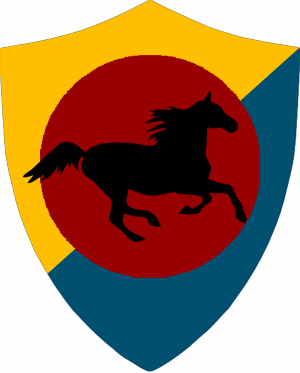
“I am Robin Archard, second son of the Archard name. My family believed one in creed, united we stand, together we persevere. Your queen can go fuck herself.” (Twilight of the Gods, 2448)
After the fall of the rose, the kingdom has no true lord or lady. It is under constant siege by the crown of the roselands after the Archard Rebellion. They do not see the new royal family as legitimate, and thus, pay their fealty to House Archard who are leading the rebellion against the monarchy.
"Edward remembered being a young boy when the fall of the rose occurred. He recalled little from that night, only watching as his frantic father returned to his stronghold in Stratton. It came as a shock to see the lord in dismay. Taken from his home in the land of the roses and hidden away in the north until the beginning of the rebellion. The death of the Nameless King changed the name of Archard, for across the kingdoms they were known as cowards who ran from the murder of their sovereign king." (The Renegade Blade, 120)
Liege House Archard: It is a mysterious house with unknown origin. It is shrouded in mysteries much like the lands that they claimed as their own.
Lord: Thonyn Archard
Lady: Jehenna Archard
Their Children: Ser Edward Archard, Ser Robin Archard, Rosieha Archard, and Henry Archard.
~ The Noble Houses ~
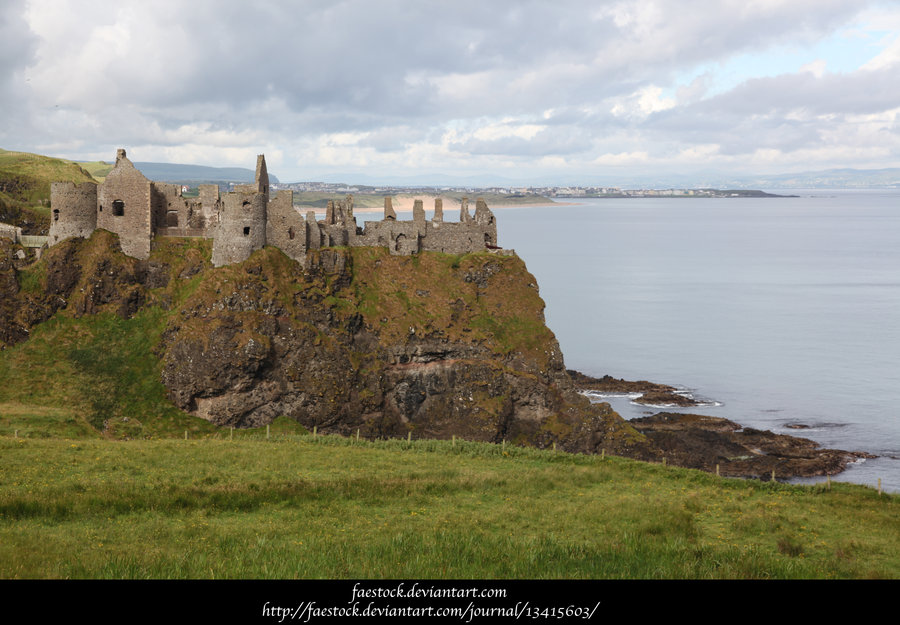
House Arundell - They bear a purple and black banner with a white oak tree upon its flag. The house is known to be half-blooded mages, no longer strong enough to wield the magic of their ancestors. They made a home for themselves within Strathmar Castle, and are true to their history, for they produce many artist, minstrels, bards and teachers for the schools in Lewenhart.
House Harthill - They are a lesser house, loyal to the Archard Rebellion and reside in the Keep of Old MaCrook. They are known to be cranky and not too friendly to outsiders. They bear the most Anoran blood but still cannot wield magic. Instead they train the finest mercenaries and knights within the midlands sending them off to fight for the rebellion.
House Whitree - This is a human noble house who is respected in the midlands. They are farmers and sheepherders known to be the helping hand during dire times (it is probably why they found favour with the stuck-up highborns). Their sigil is of a raven upon a white banner with three flames crowning its head. The banner hangs high over Invernessa Keep.
House Thorel - Another human highborn house, they live to the east in the Storme Hold. Their banner bears a running stag upon a summer orange field of wheat. They are tradesmen and merchants, known for their honesty in trade.
House Winteland - Loyalists to the Nameless Kings near driven to the brink of extinction after the sellswords of Lewenhart raided their homeland, taking up residence within the walls of Fort Whiteness. They are sheep herders and clothiers.
~ Notable Figures ~
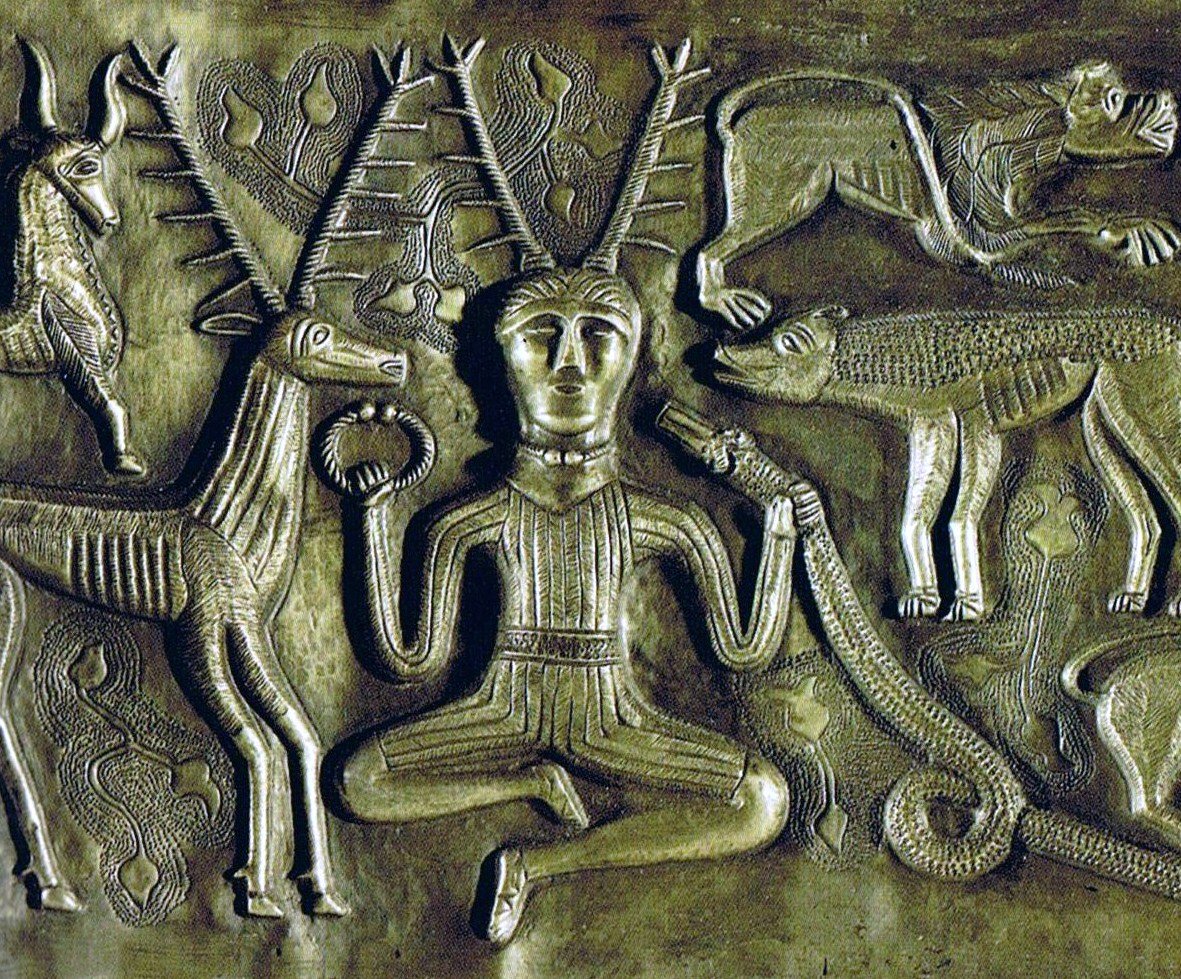
Lord Thonyn Archard
"Lord Thonyn Archard lacked his advantage in height, but his acclaimed honour granted him great authority, in the sight of the king." (The Fall of the Rose, 15)
He was once the baron of Stratton in Lysandra and a member of the Order of Ros. Thonyn fled from the capital after the fall of the Nameless King. He ran from the death of his king to the north and lived with the tribes of the Five Headed Hart to protect his family. His acts of cowardice haunted him, as now the highborn scorn him for being a coward, staining their honourable name with mockery. He now leads the Archard Rebellion.
Ser Edward Archard
“Till we meet again, brother.” (The Renegade Blade, 125)
The firstborn son to the Archard name. He is driven to uphold the honour of his family’s house. He is a knight who lives by the way of the fighter. He is rumoured to be a brutal warrior, undefeatable with abilities like a god. Edward is a young knight, a well-known bachelor who lives for his family. Yet in his heart, he knows he will never be able to bring honour to them, for he hides a secret.
Ser Robin Archard
"Till we meet again, you bastard.” (The Renegade Blade, 125)
The second-born son to the Archard name. He is less stern compared to his brother. He is a strong knight, but nothing in comparison to his brother. Despite the differences in skill, the two are close companions. He is known for his optimistic spirit and morbid humour.
Tyr
The human leader of the mage order. Sometimes you can hear his name still being whispered in the winds of the moors as a distant echoing of time...
King Arandron the Lightborn
"At the end of the hall, stood a final statue, a man with long white hair and eyes of jade. The last king of the Anora, King Arandron the Lightborn." (The Renegade Blade, 407)
The last king of the mages before the sons of man took over and destroyed the culture of the Anora, collapsing their empire.
~ Culture & Peasant Life ~
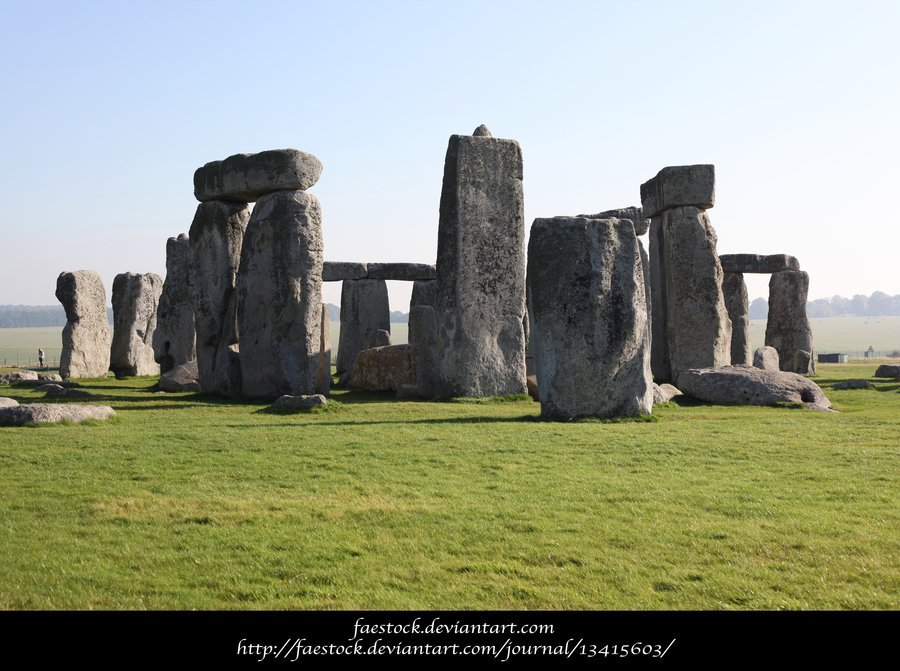
"I don’t know how you tell the difference between them all. All these damned mages look the same, with their hoydenish locks and mincing faces. They all look like sparrows in a murmuration. You cannot tell them apart.” (Bloodletting of Kings, 977)
Much of the Anoran culture has been lost. The barbaric tribes of men tore their livelihood apart when they invaded. The only evidence of their empire is told through translated tomes, manuscripts, art and runes. From these texts it is clear that the mages social structure was structured around urban life and education classes. The Anora lived in vast, rich cities of marble, with distinct and intricate carvings of tricaids and runes etched into the stone. The people were divided into two, landowners and servants. The landowners were given land by their king and their servants worked on the land in exchange for protection.
They had libraries, magic schools for men and women mages, and scriptoriums for priests and monks to study. The Anora valued knowledge over all and even the lowliest of servants lived a lavished life with the same abilities of magic as the upper class. They encouraged artists and scholars, favouring the painter or politician over the warrior (apart from dragon hunters, these were idolized as gladiators). They encouraged free-thinking and deep philosophy.
Dragons are sacred to the Anoran as the creatures gave them their powers. They hunted dragons and stole their breath, forging their magic. However, it is rumoured that dragon breath became like a drug for the Anora people, as they lived for power, always wanting to achieve more.
Gender is not equal in the midlands, even during the series, there is injustice. Women are not allowed to choose who they will marry, that is the job of the parents. Men can divorce their husbands, but women cannot. Women can give to charity, build churches, and raise children. However, when it comes to learning and practicing the fine arts, women are included (but given less opportunities to do so).
Their festival include:
The Day of the Dawn – Celebrating the creation of the world and how during Elion’s death he became three gods to govern his people after him.
The Festival of Tricks – The Anora and other put all their wisdom aside and act villainous for one day a year; this is a dangerous day for most. In Lewenhart it is the most celebrated of the year.
Eli – The start of the New Year.
Deorsa’s Day – the celebration of fishermen, the waters, those fallen in boats. The people float boats through the rivers, seas and streams to remind themselves and to thank the gods for granting them a new year.
Tribute to the Skies – the summer festival where the arts are explored. It is a tribute to the god of light, Caelia.
Harvest’s End – The end of the long days, the day when Deorsa goes to sleep for the long winter ahead of them.
~ Religion ~
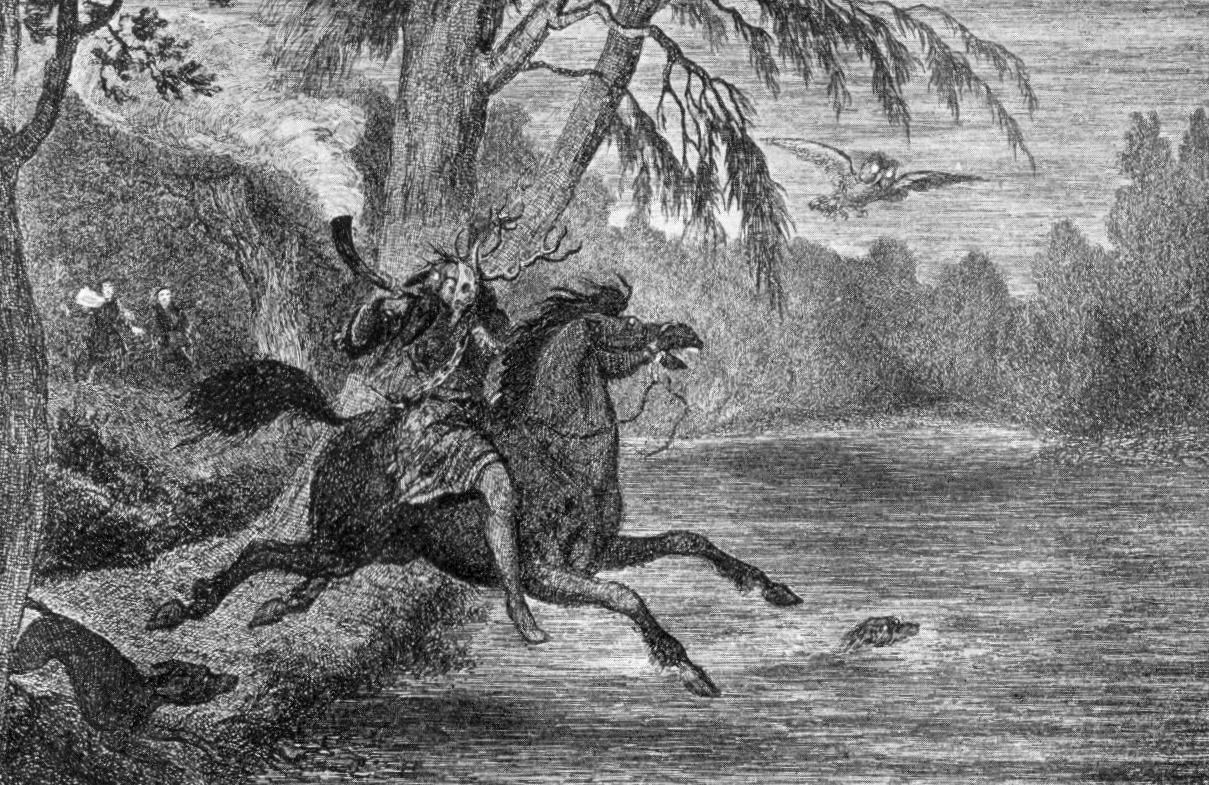
"The Anoran elder gold, Elion wished to kill the abomination. He chased it around the world without luck. But the god was a master of trickery. He knew the serpent needed to be trapped. He lowered his fishing rod into the water with the head of a bull and managed to catch the snake. But as he reeled in the line, world snake devoured the golden god. Elion fought his way out of the belly of the monster. He carved his way through and spilt the blood and guts of the snake upon his creation." (The Renegade Blade, 501)
The Anoran and the half-blooded Anoran (halflings) believe in polytheism. Their religion is the oldest of the kingdoms and it is dying. They have five gods known as Elion (the all-father), Caelia (goddess of the skies), Deorsa (god of the seas), Circan (the god of tricks) and Loakim (god of the hunt). In the death of the last mage king, the people believed Elion died with him, sacrificed upon a pyre by his children to gain immortality. However, the all-father tricked the other gods into cursing them with a lack of free will, binding them to the will of fate and instinct.
"Upon the skyward stone stood carvings of figures. One bore the picture of a quaint mother bearing a flame within her embrace, as a child. Feathered wings sprouted from her back; upon her head she wore a wreath of ivy.
On the rune stone to his left stood a man, a warrior with a spear and a shield at his side with a coat of falcon feathers upon his shoulders. A boar stood at his side.
The third carving, a man of gentle birth with the sun in his locks, a crown of light upon his brow. A grand ship at his back awaiting its lord upon the seas. The last stone bore the face of a man, with horns rooting of a stag from his head resembling the skull of a horse. In his hand, he held a snake and in the other he raised a chalice of wine." (Dream of the Druid, 581)
Their religion is pagan in its nature, with worship including blood sacrifices and pacts with the mischievous gods who appear more evil than good. The mages etch their gods into stone circles and at each festival they dance under a full moon with torches in their hands. Their worship is quite selfish as all prayer that goes to the gods is a prayer of wanting, such as a ripe fruitful harvest, a son instead of a daughter or a husband to stop his whoring.
“For the eyes of the skies, I sing praises and ask that the mother of air grants me wings.” He spoke to the boulders. His wrists bloodied from draining an offering of life from his body, to the gods of the Anora. “For the eyes of the earth, I sing praises and ask the father of nature to grant me the strength of rock. Let the children of the gods arise and anoint this blood and flesh, this iron and bone, as holy.” (Dream of the Druid, 931)
The midlanders believe that Elion will return at the end of time. He will be reborn as a son of man and raise the dead to join him in the afterlife. Between that time and the time of death, the Anoran believe in a deep sleep, where the dead rest for all eternity.
~ Places of Interest & Inspiration ~
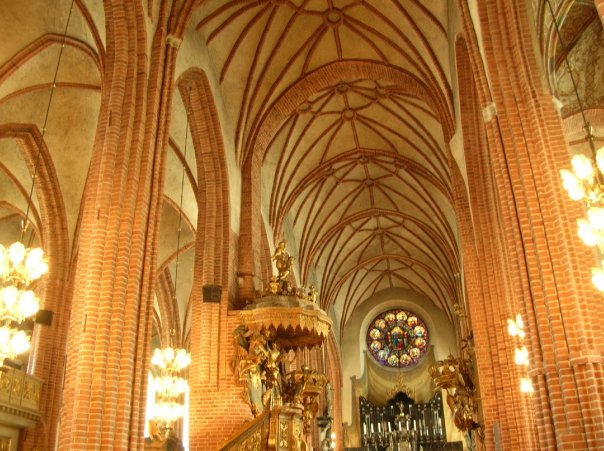
My inspiration for the Anora came from the Roman Empire. It is plain to see that they symbolize the fall of Rome. However much of the landscape and the characterization came from my interest in Scotland and Ireland, as the people of the midlands are more like highlanders than Romans.
Autumndale Hold
"Warriors trained their skills in archery while blacksmiths sharpened swords and axes for battle. The old caste laid behind them, as a symbol of a crushed race rebuilding their culture, covered in old moss and eroded stone." (The Renegade Blade, 423)
The old capital of the Anora, which once homed the mage kings. It is now nothing more than ruins within a wall of stone, cut off from the rest of the realm. It now homes the half-blooded armies of the Archard Rebellion, hidden deep within the misty moors.
Strathmar Castle
"Cold and stoic, the statues of two chimeras guarded the double oaken doors. His eyes spotted a rusted bloody axe discarded in a ditch. Puddles of blood mixed with the pounding rain water. The dirt road to the sanctuary dotted with bodies of priests." (Twilight of the Gods, 2019)
Another Anoran stronghold that is still standing and in use. It homes the half-blooded noble family known as House Arendell. It is an old fortress, beaten down and weathered with time.
Vanaheimr
Ancient magic lies here...
Asaheimr
Even more ancient magic lies here...
Lucerne
"We have to go, Leoric, we have to take him home. We will make our stand on the shores of Lucerne at dawn." (Bloodletting of Kings, 1299)
A lowly stretch of shoreline, it is said to be cursed, haunted by the spirits of the old Anoran gods and the kings of the mages. It is the longest beach in the eastern side of the realm. The weather here is strangely stormy and darksome, maybe there is some truth to the old wive’s tale.
~ Folklore ~
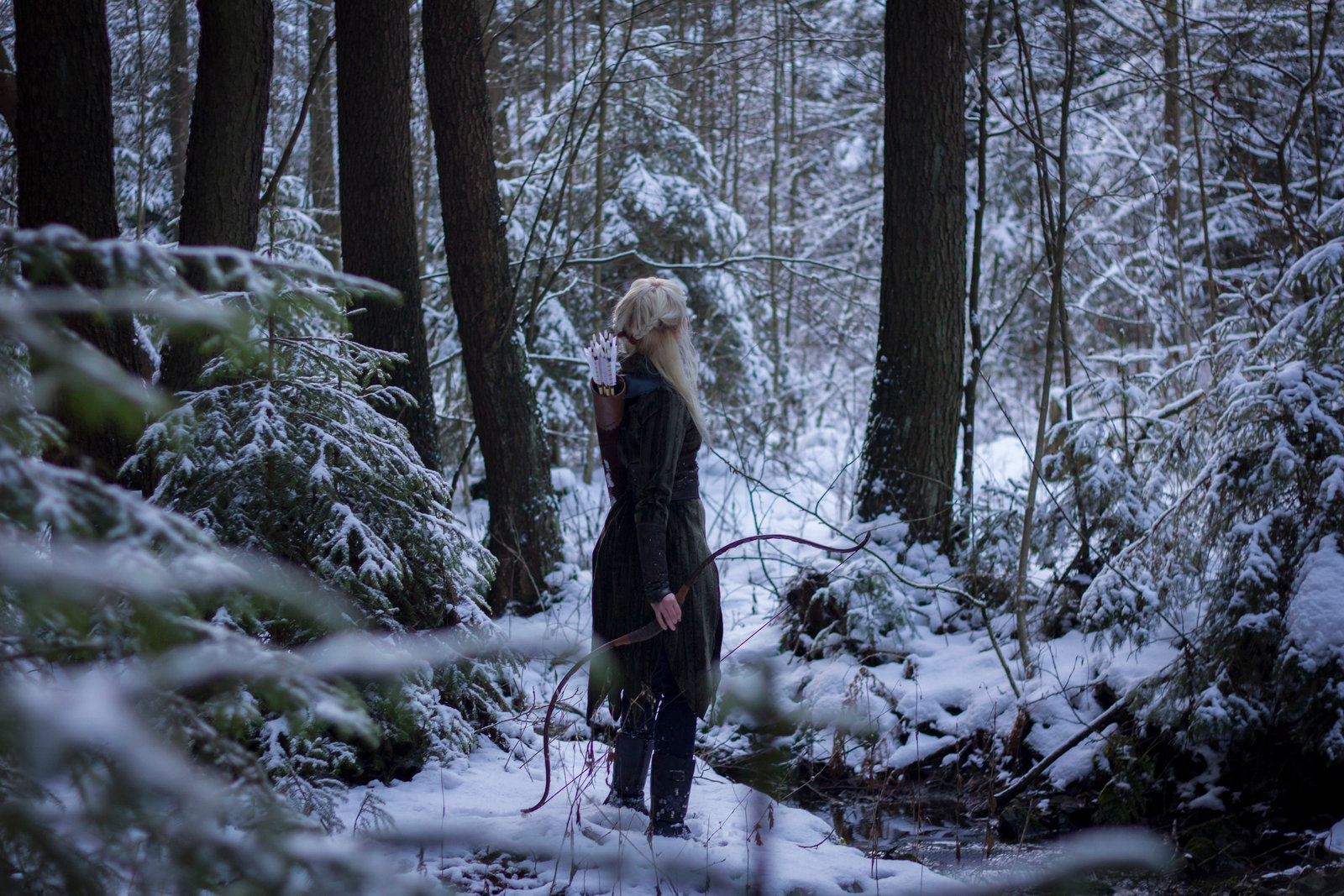
(Photo credit: Liancary-art - http://liancary-art.deviantart.com/)
The all-father created the realm, he forged it with his sacred magic known as Craetus. He looked down at the world he formed, perfect and beautiful and felt unsatisfied with his creation. He became quite bored of it all. He had trees, flowers, mammals, birds, dragons and sea creatures. Yet the realm seemed dark and without light. He found with his magic, he could not give it light or water. On hearing that light could be found hidden in a far off land, Elion decided he would travel there and steal it.
When he found the dwelling, he found his daughters had come to the realm leaving their place out of anger for their father for cursing them with such horrid children (the dragons). Elion wanted to play another trick on them one that would bring happiness. He would bless them with another fruit giving them a child who would hold the stars in their palm.
He turned himself into a small speck of dirt and slipped into her drinking water and was swallowed. This made the daughters pregnant, and she gave birth to an unusual and fussy child who cried demanding to touch one of the bundles, which had been, stored hanging from the walls.
The child was given one of the bags to quiet him, but when tired of playing with it he let it go, and it floated away from him and disappeared through the smoke hole. Once it reached the sky the bundle came undone and scattered stars across the sky. From these falling stars came the mages, who gave light to the realm Elion created.
The Binding of the Skies and Sea
Caelia rode upon a chariot of boars with wings made from wax. She flew too close to the sun and the wax wings of her boars melted. The goddess of the skies came crashing down upon the realm, falling into the sea. Her brother Deorsa, (a man of gentle birth with the sun in his locks, a crown of light upon his brow) finds his sister. He send ducks to catch her from falling and slow her descent. She landed in a vast watery place, with no land in sight.
Deorsa sailed his ship to his sister and helps her aboard. To her surprise, Caelia found herself pregnant. She gave birth to two wolves, one good and one evil. The wolves created all the natural features of the earth and sky. These were the wolves who would fight at the end of time, in the battle of good and evil.
The good twin protected the realm, while the bad only wanted chaos and to destroy her sister’s creations. She created darkness to drive the sun from the sky and made monsters, storms, and various kinds of dangerous beasts.
Caelia needed to return to the skies to protect the realm from her warring children. Deorsa raised her up into the skies. The two gods held to each other, preventing the skies and the waters from meeting.
The Pyre of Elion
Look for thee among the alder,
Upon the hills of distance skies,
Wrapp’d in stars upon the altar,
Whence the pyre ablaze to harpy cries,
He hath flown, he hath flown,
And supp’d art the ash and bone.
Where hath they taken the sire?
Upon the mountains of all weathers,
The children have lit his flesh in fire,
Blackened and burnt art his feathers,
He hath fallen, he hath fallen,
For the chalice of life art calling.
And thus youth drank eternity,
Upon the winds of winter and crimson,
Yet anon we fall upon blades of destiny,
To feel the sting of death’s snipp’d ribbon,
The gods shall live, the gods shall bleed,
The nights shall be long when we are freed.”
This was quite a long update! Nevertheless I hope that you enjoy! If you like my story and the world I have created check out the chapters I have up for reading and recommend my project if you enjoy what you read.